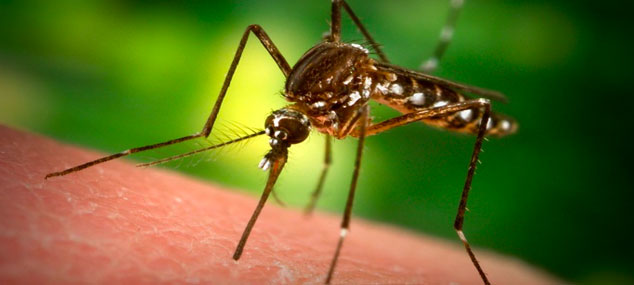
The North Coast Public Health Unit is reminding residents of Northern NSW to protect themselves against mosquitoes which remain in high numbers late in the season.
“Mosquitoes have persisted in large numbers through to early autumn, along with the warm weather in recent weeks,” Paul Williamson, Senior Environmental Health Officer, said.
The NSW Arbovirus Surveillance and Mosquito Monitoring Program recently detected Barmah Forest virus and Ross River virus in mosquitoes in the Northern NSW area. Ross River and Barmah Forest viruses are common on the north coast and are transmitted by infected mosquitoes.
So far this year, 32 north coast residents have been diagnosed with Barmah Forest virus infection and 153 with Ross River virus infections, which is two and three times the number of infections, respectively, for the same period last year. One hundred and nineteen of these infections have been reported in the last four weeks, which is six times the number reported in the same period last year.
“These infections can cause symptoms including tiredness, rash, fever, and sore and swollen joints. The symptoms usually resolve after several days, but some people may experience these symptoms for weeks or even months,” Mr Williamson said.
Avoiding mosquito bites will be especially important until cooler weather brings an end to the mosquito-breeding season.
Whilst most people are at home due to current movement restrictions, many people are heading outdoors early or late in the day to get some exercise.
“Mosquitoes are very active at these times so protect yourself from being bitten by mosquitoes when out-and-about.”
Simple steps to avoid being bitten by mosquitoes include:
- Cover up as much as possible when outside with light-coloured, loose-fitting clothing and covered footwear.
- Use an effective insect repellent on exposed skin. Re-apply repellent within a few hours, as protection wears off with perspiration. The best mosquito repellents contain Diethyl Toluamide (DEET) or Picaridin. Botanical based products (e.g. eucalyptus, citronella etc.) provide only limited periods of protection.
- Use physical barriers such as netting on prams, cots and play areas for babies. Repellents should not be used on the skin of children under the age of three months.
- Check the product label of repellents for recommended age of use. Most skin repellents are safe to use for children over the age of 3 months or older. Some formulations are only suitable for children over 12 months.
- Use insecticide sprays, vapour dispensing units (indoors) and mosquito coils (outdoors) to clear rooms or repel mosquitoes from an area.
- Cover all windows, doors, vents and other entrances with insect screens.
- Remove and prevent mosquito breeding sites around the home, such as emptying containers that hold water.
“Preventing infection with these viruses depends on avoiding mosquito bites, especially as the mosquitoes have become active after recent rain, warm days and high tides,” Mr Williamson said.
Fact sheets are available from the NSW Health website: https://www.health.nsw.gov.au/Infectious/factsheets/Pages/mosquito.aspx
Weekly reports are available during the arbovirus season from the New South Wales Arbovirus Surveillance and Mosquito Monitoring Program: https://www.health.nsw.gov.au/environment/pests/vector/Pages/nswasp-weekly-report-2019-20.aspx